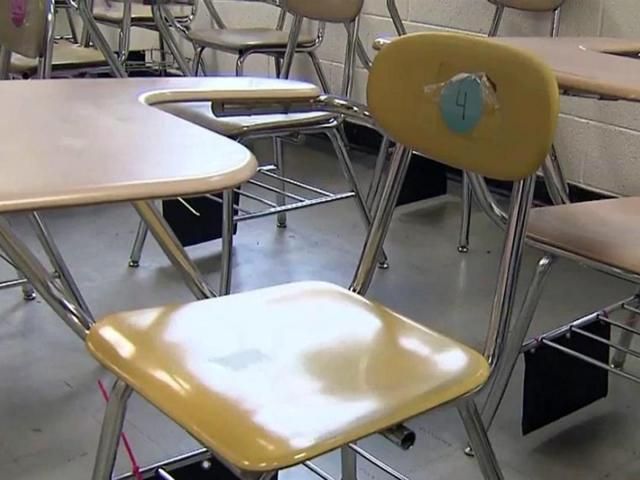The Wake County Public School System is taking significant steps to address the disproportionate identification of Black boys as “emotionally disturbed” and their disproportionately high rates of long-term suspensions among students with disabilities. To tackle these issues, the district will allocate 15% of its special education grant funding and contract with more outside behavior analysts and technicians.
**Understanding “Emotional Disturbance”**
“Emotional disturbance” is a federal special education category referring to children whose mental health challenges impede their academic progress. The Wake school district’s efforts aim to ensure equitable identification and better support for all students.
**Professional Development and Improved Assessment Processes**
The district is providing professional development to principals and educators to improve the assessment process for special education services. Currently, the district meets the 90-day standard for evaluating and placing qualifying students just over half the time. Enhanced staff training, including school leadership, focuses on tracking and streamlining assessment tasks to reduce delays.
**Federal Findings Spur Change**
The U.S. Department of Education identified shortcomings in Wake County’s special education compliance in a report based on data from the 2023-24 school year. Changes underway will not affect the next report, which will cover the 2024-25 school year and be issued in 2026.
These improvements are not solely a reaction to federal findings but also part of a broader plan to overhaul special education services, addressing longstanding challenges such as lawsuits and systemic gaps. This includes enhanced training on developing Individualized Education Programs (IEPs) for students receiving special education.
**Additional Changes Coming This School Year**
Later this school year, the district plans to reassign some central office special education staff to work directly in schools, expanding the number of coordinating teachers. These teachers will support schools in serving students with disabilities and planning for their needs more effectively.
Lisa Allred, Assistant Superintendent of Special Education Services, who took over the department last school year, emphasized a shift from reactive to proactive strategies:
*”All we’re doing is putting out fires and reacting, and we’re trying to be more proactive than that.”*
The district also intends to communicate these changes more regularly with families, potentially beginning outreach efforts in the spring.
**Broadening Accountability Beyond Special Education Staff**
Board Member Tyler Swanson, a former Wake special education teacher, highlighted the importance of involving the whole school community in supporting students with disabilities. He noted that special education teachers are often stretched thin and called for greater accountability across school buildings.
*”We have to shift the narrative of the special education teacher not doing their job, and it is the school building as a whole,”* Swanson said.
Superintendent Robert Taylor added that this broader accountability would be incorporated into principal training, noting the current issue of administrators approving decisions without sufficient knowledge:
*”That’s a problem.”*
—
### Plan for Federal Compliance
Earlier this year, the federal Office of Special Education Programs (OSEP) found that Wake County identified more Black students under the “emotional disturbance” category than expected, alongside 45 other North Carolina school systems and charter schools. Additionally, the district long-term suspended Black students with disabilities at higher rates than other demographics, a concern shared by 66 other North Carolina school systems.
Long-term suspensions refer to disciplinary removals exceeding 10 days. Due to these findings, the federal government can require states to reserve portions of federal special education funds and undertake training to address these disparities.
As part of a compliance plan provisionally approved by the North Carolina Department of Public Instruction, Wake County will set aside 15% of its special education grant to fund efforts addressing these issues.
The district will also increase contracts with behavior analysts and technicians to analyze student data, identify causes of behavioral issues, and implement preventative interventions.
Lisa Allred explained, *”That’s intended to help schools better plan to work with students and have the right interventions in place to prevent issues escalating.”*
—
### Addressing Timeliness of Evaluations
Beyond disproportionality, the report also revealed that the district met the 90-day evaluation requirement only 58% of the time, a persistent low performance according to Allred. She told the school board:
*”You can see we’re not doing well here. We’re really not closing this gap.”*
—
### Federal Oversight and Challenges
The federal Office of Special Education Programs (OSEP), responsible for conducting such reviews, faced potential layoffs earlier this month as part of broader Department of Education staffing cuts influenced by the Trump administration during a federal government shutdown. Nearly all OSEP employees were slated for layoff until a judge temporarily halted the plan.
Wake school board members expressed concerns about the possible impact of these layoffs on district oversight. Superintendent Robert Taylor stated that although funding cuts would affect student services directly, he believed the more significant impact would be on federal program oversight and administration. He also noted he had not anticipated the layoffs.
Lisa Allred added that the district has already experienced reductions in federal oversight, including fewer civil rights complaints being taken up by the federal Office for Civil Rights (OCR). These complaints often involve discrimination issues, including denied services for students with disabilities. Some cases remain unresolved for extended periods.
*”We’re seeing less OCR cases,”* Allred said, noting that many complaints are *”just out there hanging for long periods of time.”*
—
The Wake County Public School System’s efforts to address inequities and improve special education services represent a critical step toward providing fair and timely supports for all students in need. Continued monitoring and collaboration with families, educators, and federal oversight will be essential in ensuring these changes lead to meaningful progress.
https://www.wral.com/story/more-oversight-more-resources-wake-schools-sets-plan-for-compliance-with-federal-special-education-laws/22208548/

